The ALFRED HITCHCOCK Encyclopedia
The ALFRED HITCHCOCK Encyclopedia
Stephen Whitty
ROWMAN & LITTLEFIELD
Lanham Boulder New York London
Published by Rowman & Littlefield
A wholly owned subsidiary of The Rowman & Littlefield Publishing Group, Inc.
4501 Forbes Boulevard, Suite 200, Lanham, Maryland 20706
www.rowman.com
Unit A, Whitacre Mews, 26-34 Stannary Street, London SE11 4AB
Copyright 2016 by Rowman & Littlefield
All rights reserved . No part of this book may be reproduced in any form or by any electronic or mechanical means, including information storage and retrieval systems, without written permission from the publisher, except by a reviewer who may quote passages in a review.
British Library Cataloguing in Publication Information Available
Library of Congress Cataloging-in-Publication Data
Names: Whitty, Stephen, 1959 author.
Title: The Alfred Hitchcock encyclopedia / Stephen Whitty.
Description: Lanham, Maryland ; London : Rowman & Littlefield, 2016. | Includes bibliographical references and index.
Identifiers: LCCN 2015051217 (print) | LCCN 2016004225 (ebook) | ISBN 9781442251595 (cloth : alk. paper) | ISBN 9781442251601 (electronic)
Subjects: LCSH: Hitchcock, Alfred, 18991980Encyclopedias.
Classification: LCC PN1998.3.H58 W55 2016 (print) | LCC PN1998.3.H58 (ebook) | DDC 791.4302/33092dc23 LC record available at http://lccn.loc.gov/2015051217
 The paper used in this publication meets the minimum requirements of American National Standard for Information SciencesPermanence of Paper for Printed Library Materials, ANSI/NISO Z39.48-1992.
The paper used in this publication meets the minimum requirements of American National Standard for Information SciencesPermanence of Paper for Printed Library Materials, ANSI/NISO Z39.48-1992.
Printed in the United States of America
To my wife, Jacquelinemy partner in life and art and first, last, and best reader.
Acknowledgments
E ven a one-man encyclopedia is not a one-man job. I owe a great deal to Leslie Halliwell, whose groundbreaking Filmgoers Companion showed me more than 40 years ago that it was indeed possible for a single person to undertake a mad task like this, and to David Thompson, whose later A Biographical Dictionary of Film proved that a fact-crammed reference book could still be idiosyncratic and opinionated. I never would have begun this project without their early, formidable examples.
I need to also acknowledge the books and sites that formed the backbone of my own research. Donald Spotos several works, of course (but particularly his passionate The Dark Side of Genius ); Patrick McGilligans more measured but also important Alfred Hitchcock: A Life in Darkness and Light ; Robin Woods seminal work of criticism, Hitchcocks Films ; and, of course, the go-to reference book for the directors own memories, Hitchcock/Truffaut . A particularly helpful website is www.the.hitchcock.zone.com, which has myriad links to period reviews, news articles, interviews, and documentary transcripts. (Other sources can be found in the reference lists to individual entries and in the bibliography.)
I would also very much like to thank all the people I interviewed over the last 20 years, sometimes multiple times, about Alfred Hitchcock, the man and the filmmakerparticularly (although not only) Jay Presson Allen, Karen Black, Peter Bogdanovich, Brian De Palma, Bruce Dern, Farley Granger, Norman Lloyd, Shirley MacLaine, Kim Novak, Patricia Hitchcock OConnell, and Eva Marie Saint. They were all generous to a fault, and any faults in this book are my own.
Introduction
W hy should we take Hitchcock seriously? More than half a century ago, that was how Robin Wood began his slim book, Hitchcocks Films . At the time, it was not an absurd question to ask.
Today, of course, Alfred Hitchcock is probably the most famous director in historyand, perhaps, the most analyzed artist since William Shakespeare. His life and work continue to be discussed in academia and revisited in popular culture. Two autobiographical movies ( Hitchcock , The Girl ) have been recently released; a famous book-length interview with him ( Hitchcock/Truffaut ) is the subject of its own new documentary. His filmsincluding some once thought lostare currently available in a multitude of formats and continue to inspire new works (a television prequel to Psycho , a comedy stage version of The 39 Steps , in-development remakes of The Birds and Strangers on a Train ).
But in 1965, when Wood asked that question, Alfred Hitchcock was, at best, only damned with faint praise as the Master of Suspense. Although Peter Bogdanovich had interviewed the director for a good, concise monograph in 1963, Woods pioneering work was the first lengthy English-language work to strip away the usual condescension and, indeed, take Hitchcock seriouslynot just as an assembler of entertaining thrillers or even a slick craftsman but as someone whose works spoke to guilt, doubt, alienation, and all the anxieties of the modern world, an artist to be given the same consideration we give any great author. Yet at the time, Woods strong, simple answer to his own rhetorical questionwe should take him seriously because hes a serious artistwas still met with raised eyebrows.
Shortly after Woods book, however, the exhaustive Hitchcock/Truffaut came out. There was another wave of appreciations following Hitchcocks Irving G. Thalberg Memorial Award from the Academy of Motion Picture Arts and Science in 1968, a more harshly critical summing-up after the bleak disaster of Topaz the next yearand then a further, more positive reappreciation after the surprise success of Frenzy in 1972.
And Hitchcock, never publicity shy, took full advantage of the new interest, making time for interviews and public appearances, including sitting for a PBS documentary, agreeing to a New York Times Magazine piece, and retelling his favorite anecdotes on a multi-episode run of TVs The Dick Cavett Show. His films were re-released to theaters and revived for television. Meanwhile burgeoning cinema studies departments turned out new scholars yearly and new pieces regularly. His reputation increased. Since the filmmakers death in 1980, that interest has only grown. And grown more controversial.
In 1983, Donald Spotos groundbreaking critical biography The Dark Side of Genius: The Life of Alfred Hitchcock took a lengthy look at the mans art and his life, portraying him as an increasingly obsessed loner whose fetishes finally led him to both dark masterpieces and gross acts of sexual harassment. Twenty years later, Patrick McGilligans gentler Alfred Hitchcock: A Life in Darkness and Light offered, right from its title, a more evenhanded approach, praising the films while dismissing some of the worst accusations in Spotos book (although, ironically, also offering a few new ones). And in between those two biographiesand continuing to this dayhas been an ever-increasing pile of purely aesthetic analyses, taking so many different approaches that as a whole they raise a new and perhaps even more controversial question.
Which Hitchcock should we take seriously? Is it the misogynist directorwho liked to quote the writing advice of the French dramatist Victorien Sardou (Torture the women!); took exquisite care filming scenes of his heroines being strangled, stabbed, raped, and shot; and was himself accused of verbally abusing and sexually harassing some of the actresses on his sets? Whose films are built around the objectifying and diminishing effects of the male gaze, which reduces women to mere legs and lips and hair and ultimately turns violence against them into popular entertainment? Should we look to him?
Or is it to the feminist filmmakerwho identified so strongly with his heroines that he often told his stories from their points of view; who took such enormous care with his leading ladies that many returned happily to work with him again and again; who collaborated closely and confidently with female colleagues like Joan Harrison, Edith Head, and his own wife, Alma Reville? Whose films often centered on the oppression of women and dramatically detailed how a patriarchal culture and male-dominated power structure kept them in bondage, forced them into prostitution, denied them any real independence?
Next page
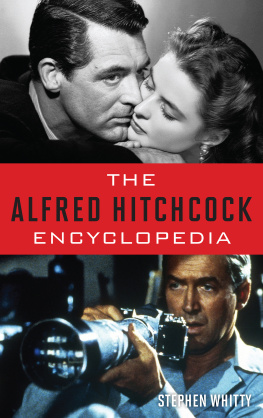
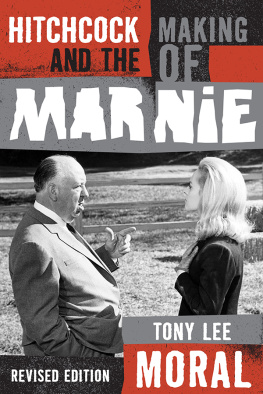
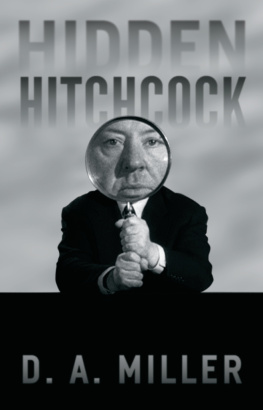

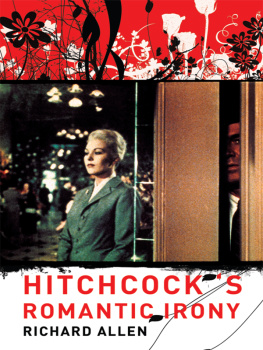
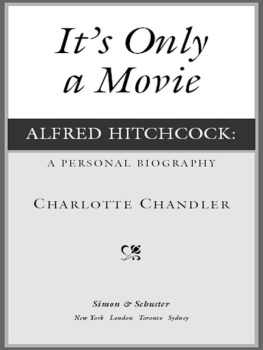
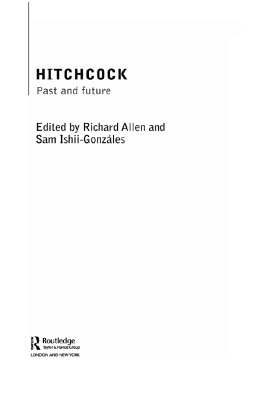
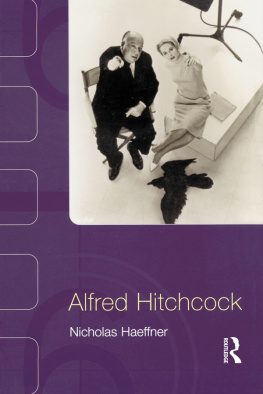
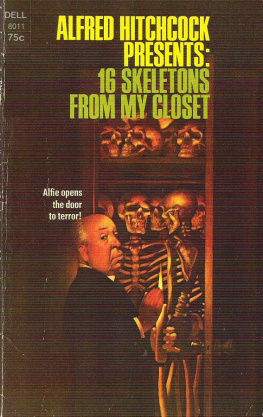
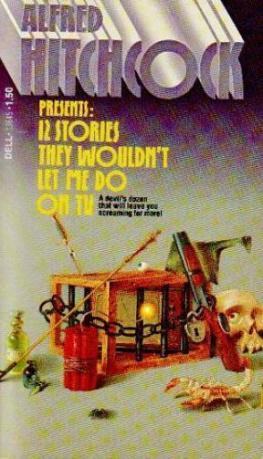
 The paper used in this publication meets the minimum requirements of American National Standard for Information SciencesPermanence of Paper for Printed Library Materials, ANSI/NISO Z39.48-1992.
The paper used in this publication meets the minimum requirements of American National Standard for Information SciencesPermanence of Paper for Printed Library Materials, ANSI/NISO Z39.48-1992.